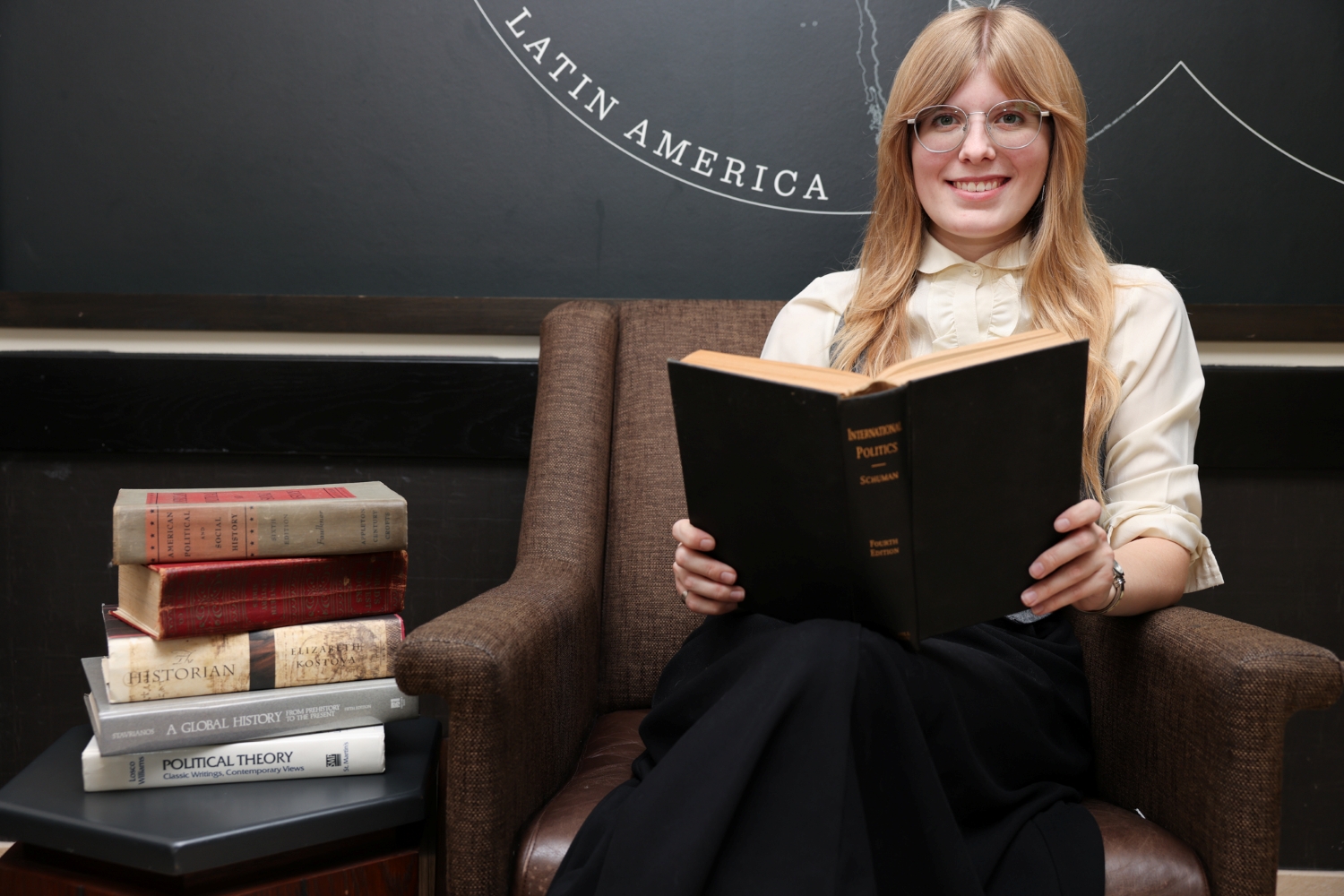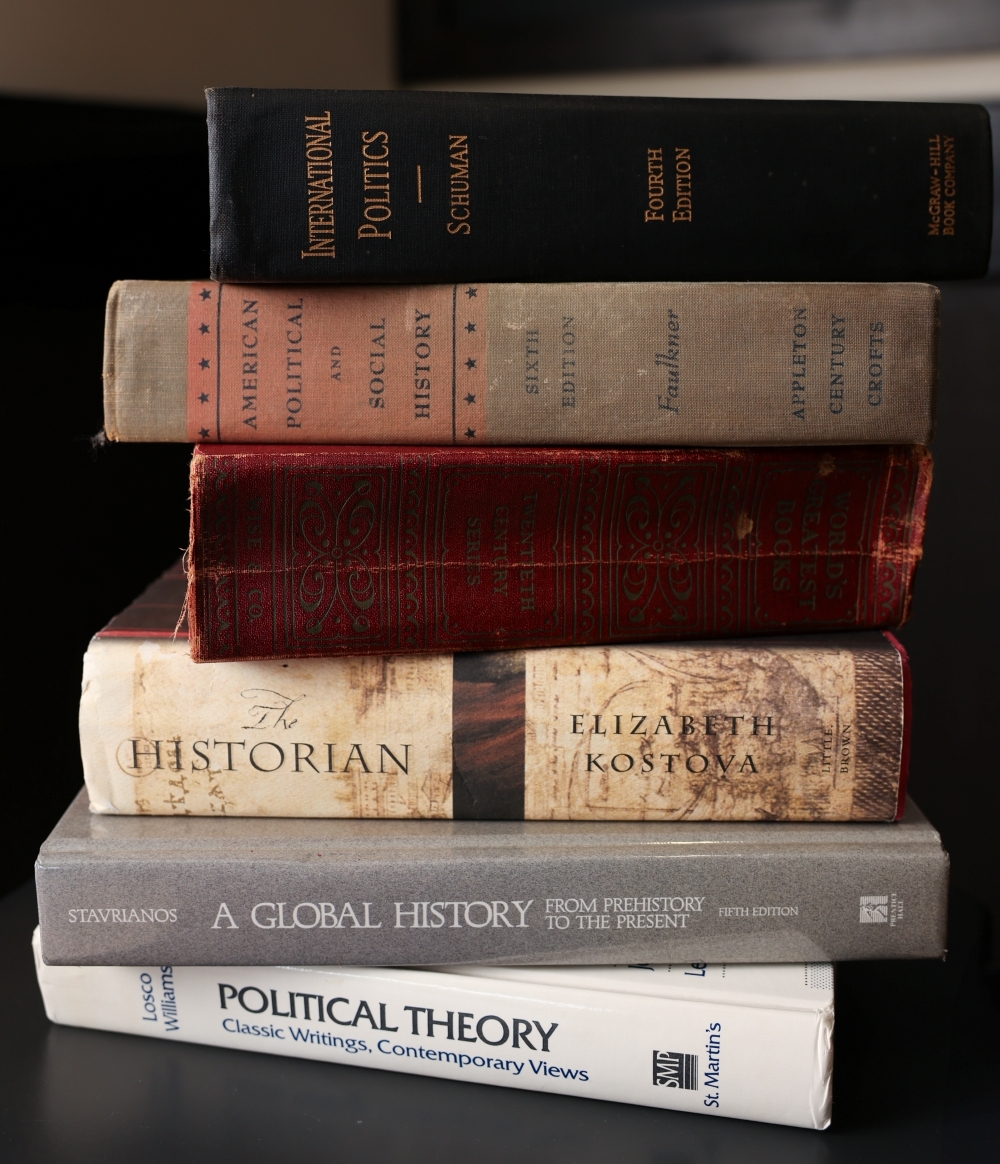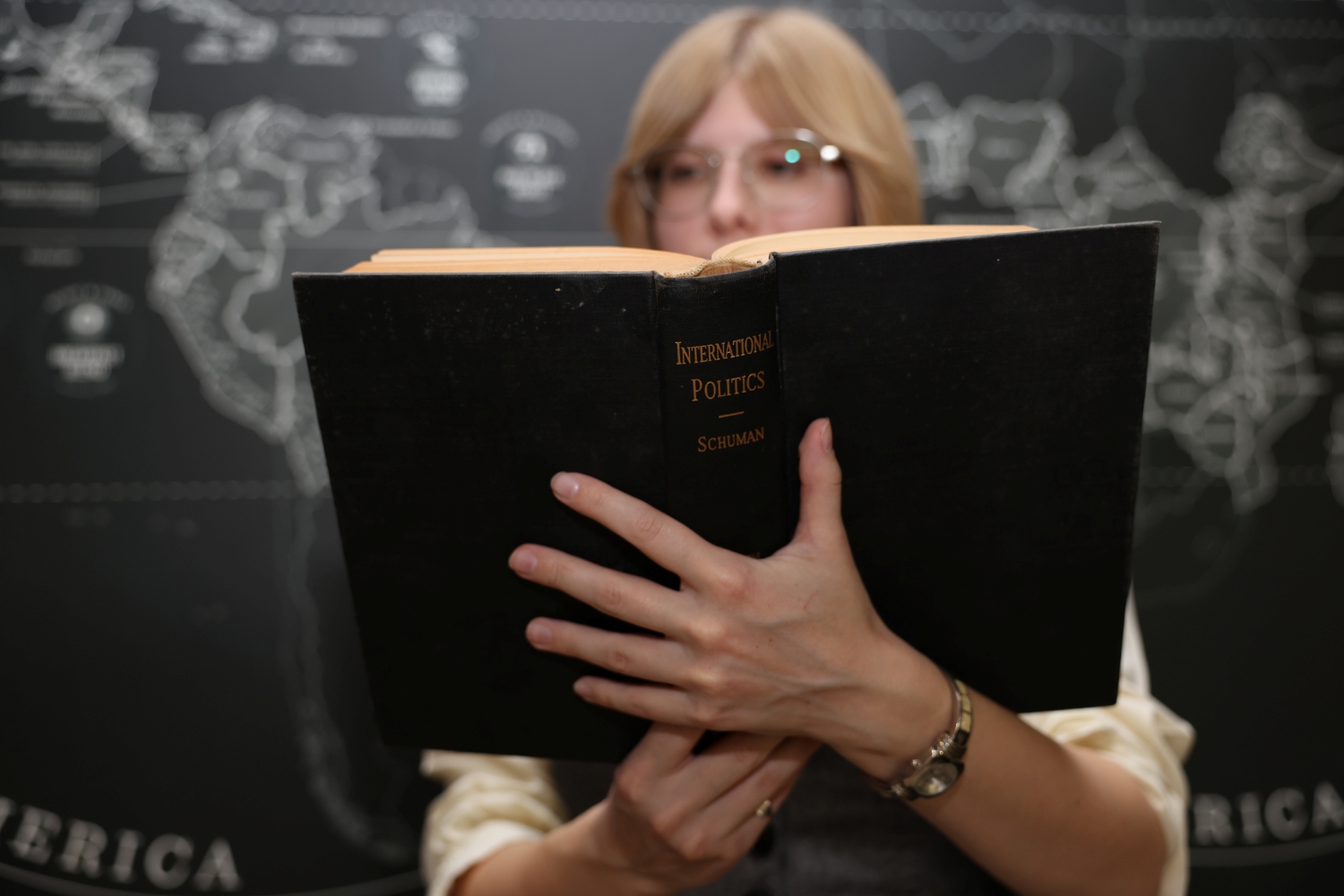

KENNESAW, Ga. | Aug 21, 2025

Alexandria Currier solidified her plans to pursue history in college after taking AP U.S. History and AP Research courses through North Cobb High School’s magnet program. Kennesaw State University offered her the perfect combination of location, financial accessibility, and faculty with a diverse range of historical research areas. However, her interest in history made itself known long before she started applying for college.
Currier’s family lives in the same Acworth, Georgia home that her grandparents built in the 1970s. Inside, there are old newspapers, the first drafts of history, that piqued her interest in the mindset of a historian from a young age. On one wall, there is an Irish Times article that her grandfather saved titled “God Saves Senator Kennedy as Catholic Girl Drowns.” According to Currier, her forthcoming thesis was heavily influenced by another newspaper with headlines declaring that Osama bin Laden had been killed.
“My family has a history of military service itself, so I’ve intentionally sought out researching areas of foreign policy with a bit more of an objective perspective toward the United States; trying to look at it as a historical event rather than a current event.”
Currier explained that Radow College’s history department “has been very good about being [able] to support students in their interests.”

That support helped her publish a peer-reviewed article, “Indeterminate Politics: U.S. Interventionism Within Nicaragua,” in the academic journal Saber and Scroll, which accepts submissions pertaining to history and military history. “Indeterminate politics fits in pretty well with that because it does deal with... military involvement, but it’s not direct in the same way that a lot of Americans think military involvement has to be,” Currier said.
The process began when Currier enrolled in Lauren MacIvor Thompson, Ph.D.’s Historical Methods course. She decided that if she was going to be a history major, the first thing she should tackle was a historical event that she couldn’t confidently explain: the Iran-Contra scandal, which became the basis of her class paper. “I don’t understand this event, and I want to, and one of the ways I can do that is [by] looking at how everyone else understands it,” Currier explained. “That actually lent itself to the paper becoming ‘why is it not clear among everyone,’ which I wasn’t expecting.”
MacIvor Thompson realized the potential of Currier’s class paper, and when she saw a call for articles, Currier was the first person who sprang to mind. “She’s really been a model student in terms of... illustrating how you go from a class paper to publishing something in a peer-reviewed journal,” MacIvor Thompson explained.
MacIvor Thompson teaches her students the art of scaffolding their work. For example, a short paper written for a class can turn into an article, then the basis of a master’s thesis or dissertation. “We talked a lot about how nothing should ever go to waste in the classes that you’re taking for your history major, because if you intend to go to graduate school in some capacity or if you end up working in policy institutes or anything like that... you’ve developed not only the skills to perform in those places, but also you have this... product that you have been able to put together in writing, and that’s what she’s done.”
Currier presented her research as a poster at the 2024 Symposium of Student Scholars, and when her research was accepted to the National Council of Undergraduate Research in Philadelphia, she won a competitive grant from Radow College to make that trip possible. “I had to confront if there were any sort of weaknesses in it, which also helped me justify it to... the publication,” Currier explained.
Currier submitted her article, completed the editing process, wrote an abstract and cover letter, and found photos she could use and cite from the Library of Congress. Once the article was published in Saber and Scroll, Currier realized that it had an international reach. Some of her readers hailed from countries including Sweden and Brazil. Her chosen topic also led to interesting conversations at conferences, including with a researcher whose family had fled Nicaragua during the events surrounding the Iran-Contra scandal.

Currier will graduate in December 2025 with a Bachelor of Arts in History and a minor in International Affairs. The skills she has learned to evaluate the past have prepared her for the path forward, and she is grateful for her educational experience at Radow College.
“I think that regardless of what I end up doing with research in the future, my degree is valuable,” Currier said. “I’ve gained plenty of skills from it, both inside and outside of pure research applications.”
— Story and photos by Noelle Lashley